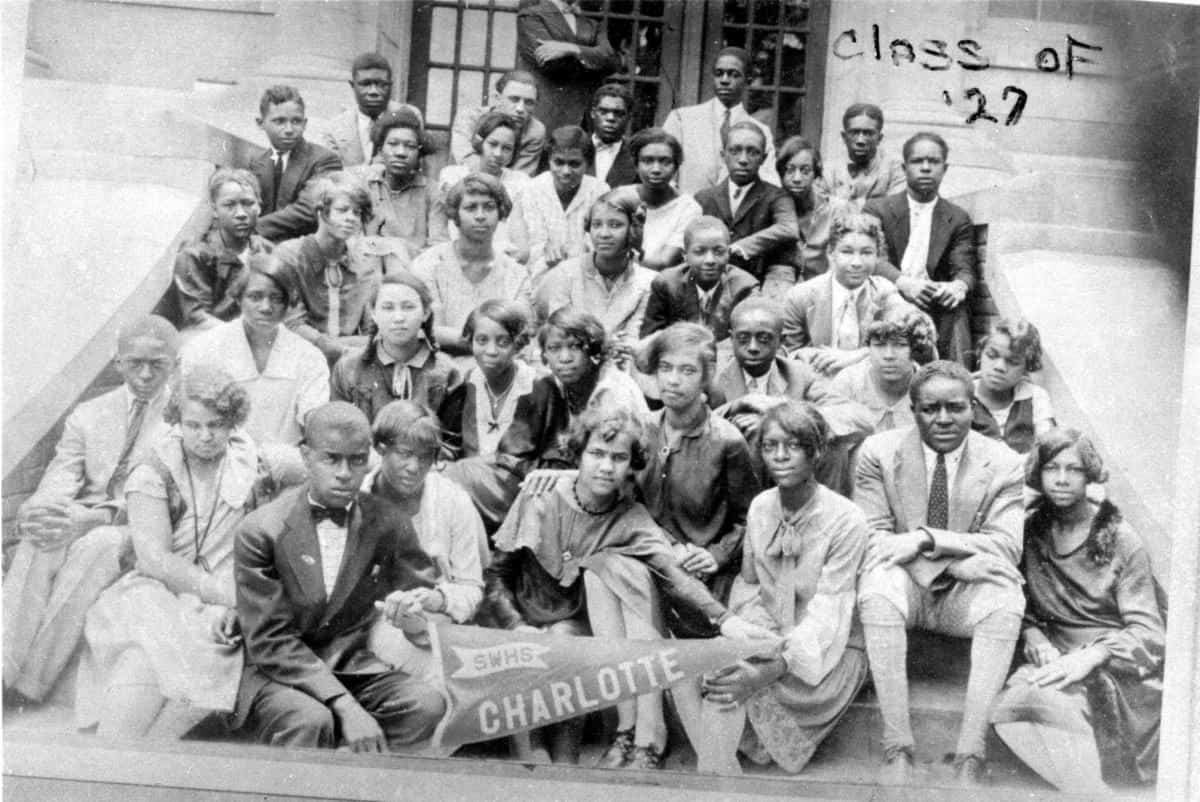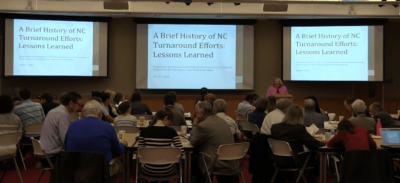Forty-five years ago today, the United States Supreme Court ruled in the case of Swann v. Charlotte-Mecklenburg Board of Education, establishing busing programs in Charlotte and across the South to help desegregate public schools.
Adam Rhew has a feature today exploring what’s happened in Charlotte public schools since the decision. Below, we have three videos from a recent event at the UNC School of Law: “45 Years Later: Celebrating Swann, Examining the Judicial Retreat from School Integration, and Imagining a Path Forward.”
First up, David Neal, a staff attorney at the Southern Environmental Law Center and Z. Smith Reynolds Foundation Trustee, documents the years after the Supreme Court decided Brown v. Board of Education of Topeka and declared segregated schools unconstitutional. Many areas attempted to find ways to fight or undermine the decision until Swann laid the foundation for busing to integrate schools.
Next up, Adam Stein, founding partner of Ferguson, Stein, Chambers, Gresham & Sumter, tells the story of the Swann v. Charlotte-Mecklenburg case, which was fought by his partner Julius Chambers.
Finally, Jack Boger, the former dean of the UNC School of Law, explores desegregation litigation between the Swann case in 1971 and Belk v. Charlotte-Mecklenburg Board of Education in 2002. The U.S. Supreme Court decided in Belk that Charlotte-Mecklenburg public schools had become desegregated and busing was no longer needed.
On this historic day, tell us what you think.



